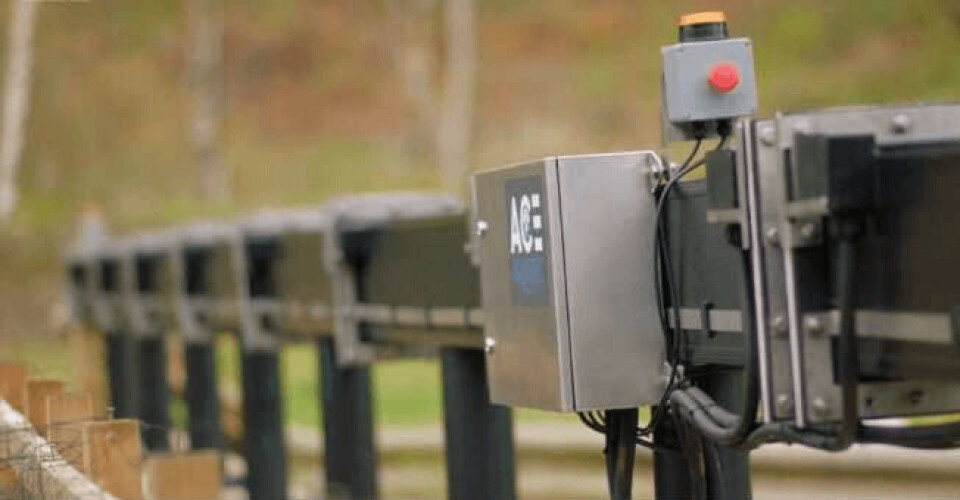
Aquaculture supplier to lead humane slaughter project
Dundee-based aquaculture technology supplier Ace Aquatec is to lead a consortium that aims to develop, test and validate methods to humanely stun finfish on an industrial scale.
The project is one of three awarded a total of £1.93 million by the Humane Slaughter Association. The total cost of the finfish project is £721,580.
Norwegian research organisation Nofima will lead a similar study on commercial species of crab and lobster, and the Association of Cephalopod Research (CephRes) will research humane slaughter of cephalopods (octopuses, squid and cuttlefish).
Ace Aquatec is a leader in humane slaughter of finfish, having won the Innovation Award at Aqua Nor in Trondheim, Norway 2017 for its Humane Stunner Universal (HSU), a device that uses electricity to stun fish while they are still in the water.
The HSU is used by fish farmers including Scottish Sea Farms and Selcoth Trout near Moffat.

Recording brain activity
Ace Aquatec managing director Nathan Pyne-Carter said the three-year finfish project is a collaboration with Silsoe Livestock Systems Ltd, Steve Wotton Ltd and the Universities of Bristol and Stirling and IRTA (Institute of Agrifood Research and Technology, Catalonia).
The consortium includes Tesco, as well as having the support of Waitrose.
The project will implement in-water electrical stunning in large volume finfish aquaculture industries where current killing methods fail to protect fish welfare.
“Ace Aquatec is developing a new high voltage stunner as well as supplying pilot stunning systems to be deployed across the supply chain, to enable farms of species that to date have not adopted humane slaughter to see the economic, efficiency, and welfare benefits of adopting these systems. After a period of use we will take the pilots to new farms,” said Pyne-Carter.
The project will focus on inducing immediate unconsciousness in Nile tilapia, pangasius, gilthead sea bream, yellowtail kingfish and possibly carp, and will attempt to non-invasively record fish brain activity in response to stunning (science is currently lacking such welfare data for some of these species).
Fishing boats
Nofima’s project will be run in conjunction with the Institute of Marine Research (IMR) and Norwegian company Optimar AS, which produces a wide range of fish handling products. These include an electric stunner for farmed and wild fish, as well as the Optilice mechanical de-lousing system for farmed salmon.
The researchers will focus on inducing immediate unconsciousness in snow, red king and edible crab, and in the Norway and the European lobster and possibly the American lobster. There is also potential for the equipment to be used in processing plants and on fishing vessels.
The cephalopod project is a collaboration between 12 institutions based in Italy, UK, Norway, Denmark, Portugal, Austria, Germany and Mexico and is expected to take five years to complete.
The team will focus on the common cuttlefish, the common squid, the little squid, the common octopus and the Mexican four-eyed octopus.

Sentient animals
The HSA’s chief executive and scientific director Dr Huw Golledge said there was growing evidence that fish, crustaceans and cephalopods are all sentient animals which deserve as much protection for their welfare as other commonly farmed species.
“This has already resulted in the introduction of limited legislation in various countries to protect fish welfare at the time of slaughter,” said Golledge.
“In the case of crustaceans and cephalopods, I fully support recent attempts to extend legal protections to these species.
“However, in order to meaningfully protect the welfare of these animals we need more than just legislation, we need to know how to treat them to ensure that they do not suffer.
“The research that the HSA is supporting is designed to produce exactly this kind of crucial, practical knowledge which should allow these animals to be slaughtered humanely in future.”






















































